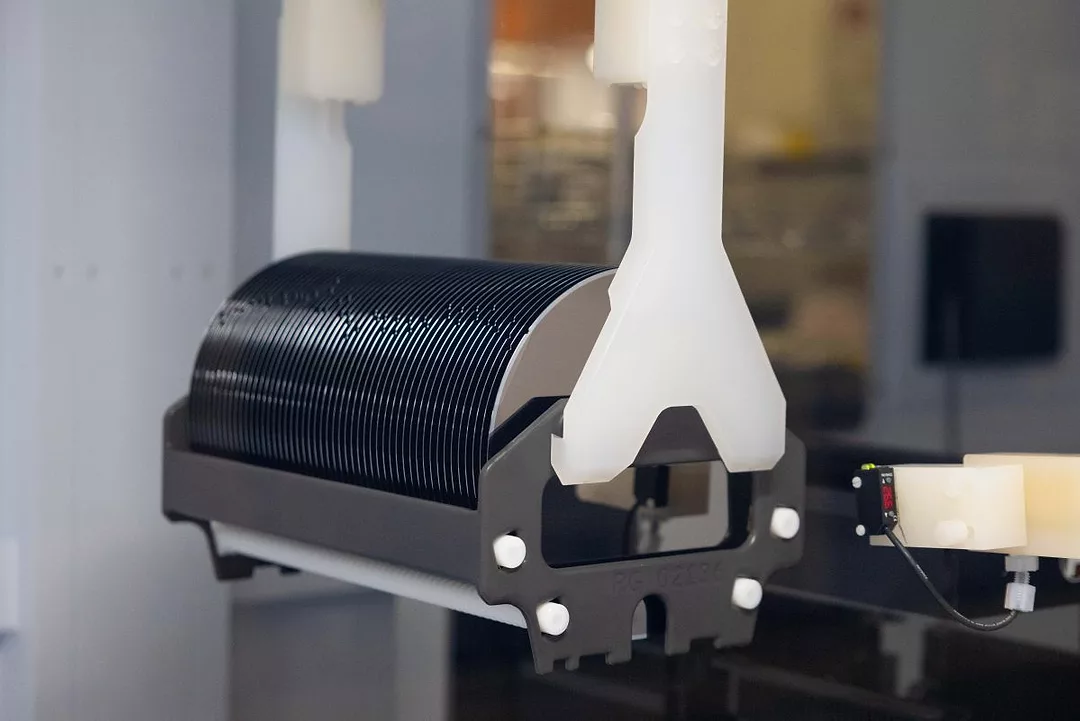World
Europe’s Auto Industry Faces Production Disruption from Chip Shortages

Europe’s automotive sector is bracing for significant production disruptions due to China’s recent export restrictions on semiconductors produced by the Dutch company Nexperia. This situation is expected to impact key suppliers within a week and could affect the entire industry within 10 to 20 days, according to sources familiar with the matter who requested anonymity due to the sensitivity of the discussions.
Hildegard Müller, president of Germany’s VDA auto lobby, expressed concerns, stating, “The situation could lead to significant production restrictions, possibly even production stoppages in the near future.” The restrictions were implemented after the Dutch government took control of Nexperia under emergency laws designed to protect strategic production, a move that has intensified existing trade tensions, particularly between China and the United States.
The implications of these restrictions extend beyond Europe, affecting U.S. automakers as well, given that many smaller parts and electronics manufacturers also rely on Nexperia chips. The auto industry was caught off guard by the Dutch government’s decision to take control of Nexperia, which reportedly followed pressure from Washington.
In response to the potential crisis, manufacturers and their suppliers have initiated emergency meetings with government officials to formulate contingency plans. However, they have cautioned that sourcing and qualifying alternative components will take months rather than days. German chipmaker Infineon Technologies AG, a principal supplier to the automotive industry, has been inundated with inquiries from manufacturers seeking different sources for their components.
As automakers navigate this challenging landscape, they have started to establish communication channels with Chinese authorities and officials in the Netherlands and the European Commission. This outreach aims to clarify the details of the export controls and to explore solutions that could mitigate the impact before production lines face halts.
Volkswagen AG has formed a task force to evaluate its supply chain vulnerabilities regarding chip shortages. Similarly, Robert Bosch GmbH, the world’s largest auto parts manufacturer, is maintaining close contact with Nexperia and other suppliers to minimize any disruptions. A Bosch spokesperson stated on October 21, 2023, “Like other Nexperia customers, we are facing major challenges due to the current situation. We therefore hope for a swift resolution among the parties involved that will help ease the current supply bottleneck.”
Meanwhile, Mercedes-Benz Group AG is monitoring the evolving situation closely, having secured short-term chip supplies. A company representative noted that while they are actively working with partners to prevent supply gaps, the overall environment remains volatile and unpredictable.
The unfolding scenario highlights the interconnectedness of global supply chains and the challenges faced by the automotive sector in adapting to rapid changes in production capabilities. As the industry grapples with these disruptions, the focus remains on securing a stable supply of essential components to sustain operations.
-

 Science2 months ago
Science2 months agoInventor Achieves Breakthrough with 2 Billion FPS Laser Video
-

 Health2 months ago
Health2 months agoCommunity Unites for 7th Annual Into the Light Walk for Mental Health
-

 Top Stories2 months ago
Top Stories2 months agoCharlie Sheen’s New Romance: ‘Glowing’ with Younger Partner
-

 Entertainment2 months ago
Entertainment2 months agoDua Lipa Aces GCSE Spanish, Sparks Super Bowl Buzz with Fans
-

 Health2 months ago
Health2 months agoCurium Group, PeptiDream, and PDRadiopharma Launch Key Cancer Trial
-

 Top Stories2 months ago
Top Stories2 months agoFormer Mozilla CMO Launches AI-Driven Cannabis Cocktail Brand Fast
-

 Entertainment2 months ago
Entertainment2 months agoMother Fights to Reunite with Children After Kidnapping in New Drama
-

 World2 months ago
World2 months agoR&B Icon D’Angelo Dies at 51, Leaving Lasting Legacy
-

 World2 months ago
World2 months agoIsrael Reopens Rafah Crossing After Hostage Remains Returned
-

 Business2 months ago
Business2 months agoTyler Technologies Set to Reveal Q3 Earnings on October 22
-

 Health2 months ago
Health2 months agoNorth Carolina’s Biotech Boom: Billions in New Investments
-

 Health2 months ago
Health2 months agoYouTube Launches New Mental Health Tools for Teen Users









